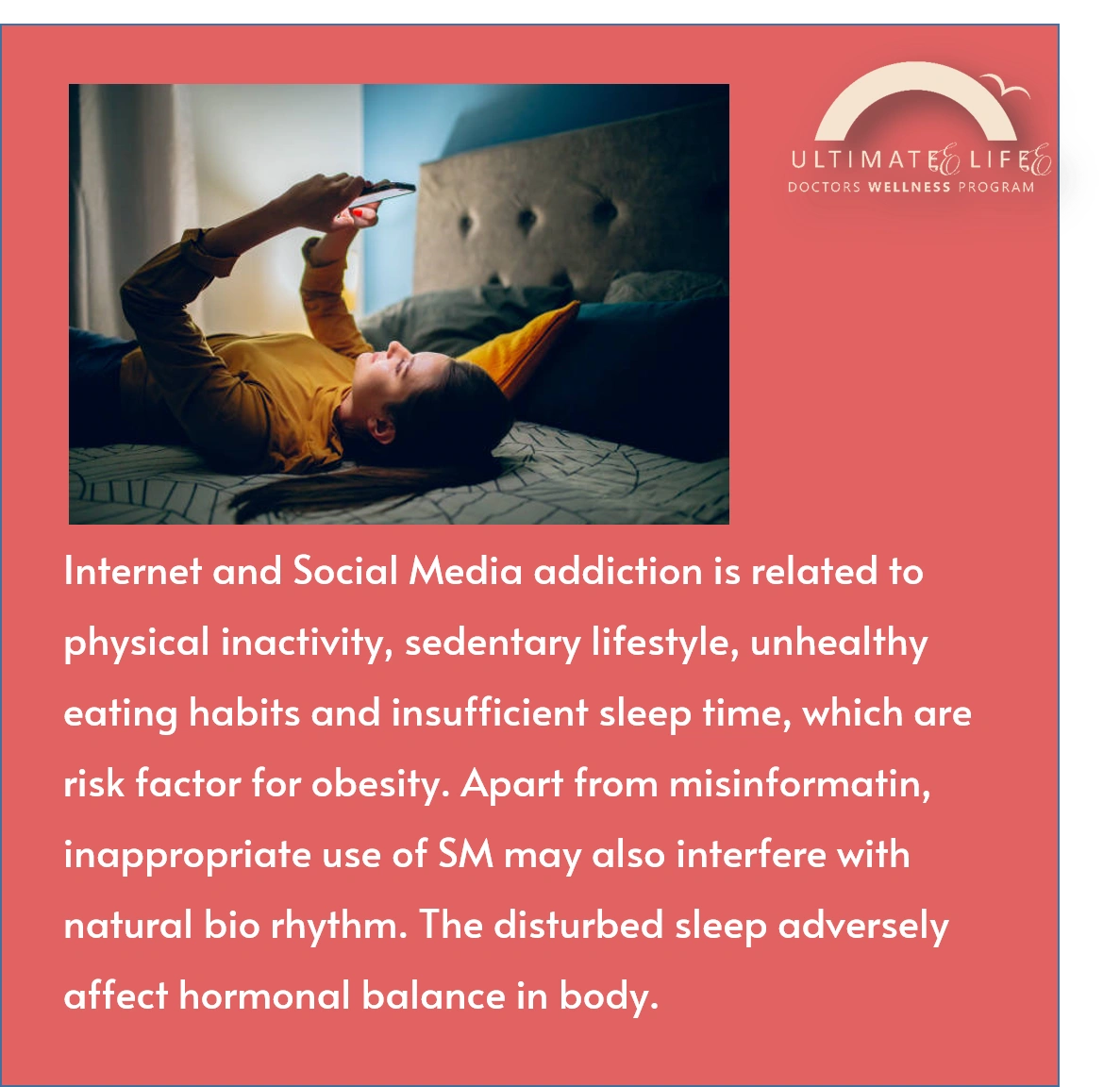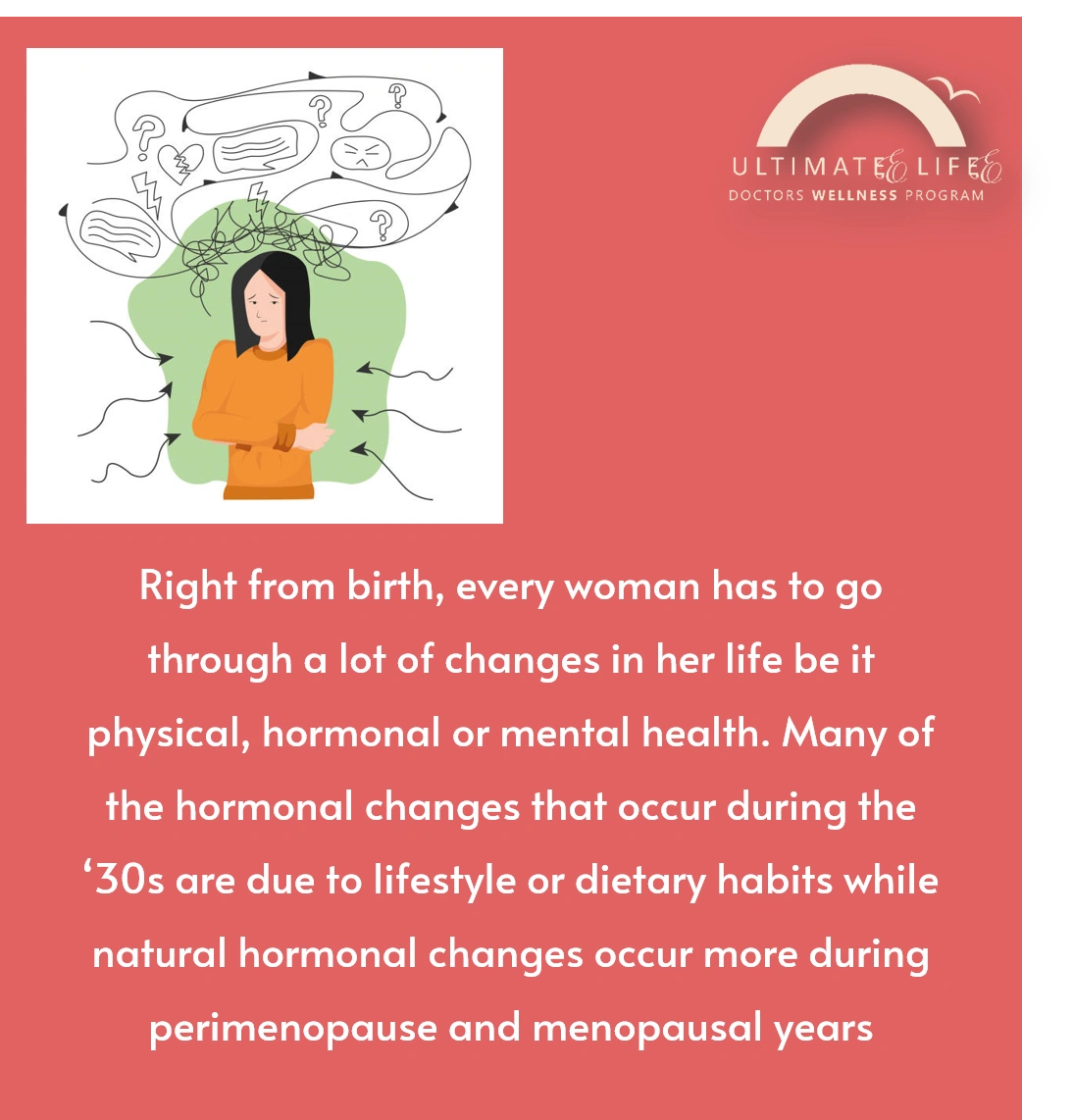Hormonal Imbalance in ‘20s and ‘30s

Hormonal Imbalance in ‘20s and ‘30s
Hormonal imbalance can be a challenging and frustrating experience for younger women. Hormones play a crucial role in regulating various bodily functions, including metabolism, growth, mood, and sexual function. When hormones are out of balance, it can lead to a range of symptoms that can significantly impact a woman's quality of life.
Hormones are powerful signals that play a vital role in regulating various bodily processes. Even a slight deviation from the normal levels can cause significant changes within the body, potentially leading to certain conditions that may require attention
Hormonal imbalances can be transient, resolving over time, while many may be chronic or long-term. Depending on the specific hormones involved and the extent of the imbalance, the symptoms may vary. But one thing is common - they negatively affect a women’s quality of life.
There are also a number of medical conditions that can affect hormone production including thyroid disorders, polycystic ovary syndrome (PCOS). Lifestyle habits, such as poor dietary choices, smoking, alcohol, inadequate physical activity, and stress, can also lead to hormonal imbalances.
Additionally, certain medications, such as birth control pills, steroids, and certain antidepressants, may also be associated with hormonal imbalances in individual cases.

The ‘20s
In early ‘20s young women are excited to pursue educational goals and establish their career. This phase is filled with energy, vigour and limitless possibilities. They are establishing their Career path, relationships, study, travel or doing multiple things at a time. Physiologically they start noticing and understanding their body better. All these things take a great deal of time and energy. Also during this time the hormonal balance gets increasingly compromised by factors such as extreme stress, anxiety, exposure to harmful chemicals (including cosmetics).
They may fall prey to Reels, Posts on Social media pumping all sorts of unscientific and unhealthy advice for weight loss and skin health to young women.
The ‘20s can also be more party-focused, “Freedom” time with more junk eating. Some may start smoking and drinking alcohol and start using ECP or emergency contraceptive pill. Many women start using ECPs frequently, These E-Pills disrupts menstrual cycle and they might even notice a few strange and unexpected changes in the vaginal discharge.
Some women are put on hormonal pills to address unwanted hormonal symptoms like heavy periods, acne, mood issues or cycle-pain and while they can be useful to suppress symptoms, they can also mask underlying hormonal imbalances like PCOS, endometriosis which can affect long term health and fertility.
Mid to late ‘20s many of these women get married and they wish to start planning a family. For some, the unhealthy practices of the past start reflecting. Improper periods, Infertility, Weight Gain are usually observed.
Generally, the focus on healthy food and lifestyle takes a backseat. This is the time when all these changes to food and lifestyle may trigger a mild inflammation in you which of course, has many undesirable negative effects ranging from infertility, weight disturbances, hormonal imbalance to chronic health disorders as you move to your ‘30s.

In ‘30s
‘30s is an age with juggling roles as daughters, friends, colleagues, wives, and mothers. Crazy lifestyle, work pressure, relationship issues, low-quality food - are some factors which can cause potential health issues.
While early ‘30s may be one of the easiest times to get pregnant, it may not be ideal for many women for many reasons, including education, a focus on a professional career, lack of financial security, no partner, or the desire to pursue other personal goals before having children.
In ‘30s bodies generally start showing signs of aging. The fine lines on the skin and some sudden body aches and pains are common. There’s a decrease in muscle tone and bone density, a slower metabolism and loss of skin elasticity.
On the health front, this is a time when most female bank on the foundation of their health which, of course, is based on their teenage and ‘20s nutrition and lifestyle. If that was bad, the health outcomes in ‘30s can be poor.
Due to improper hormones - Fibroids, Endometriosis, Cancer are frequently diagnosed when a woman is in their ‘30s and ‘40s
Many of the hormonal changes that occur during the ‘30s are due to lifestyle or dietary habits while natural hormonal changes occur more during perimenopause and menopause. Using your ‘30s to build and solidify your foundational health can ensure your ‘40s, ‘50s, and beyond are set up for your best hormonal health!

Help Balance Your Hormones with Healthy Changes
The nutrients present in our food serve as Cofactors, Precursors, and Regulators in the synthesis and function of hormones. Adequate nutrition is essential in the ‘20s because this is a crucial phase of physical and hormonal maturation.
By late ‘20s Chronic Inflammation and oxidative stress associated with poor dietary choices start to impact hormonal health. Nutritional imbalance and poor dietary patterns can disrupt the normal development and functioning of the reproductive system, affecting regular ovulation and the quality of eggs released during the menstrual cycle.
Thus, the quantity, quality, and composition of foods has substantial influence over hormonal health. A normal, balanced diet, rich in essential nutrients plays a pivotal role in maintaining hormonal equilibrium, preventing reproductive disorders, and safeguarding fertility.
Right from birth, every woman has to go through a lot of changes in her life be it physical, hormonal or mental health. These changes are seen at every stage of her life right from menstruation and pregnancy to motherhood and menopause. Hence, it goes without saying that different needs at different ages.

We’re Here to Help You Find Answers and Feel Better
We know it can be exasperating to have hormone issues when you are in your ‘20s and ‘30s. And the conventional treatment with hormonal pills can leads to multiple health issues in following years.
We are Ayurveda Doctors, and we're here to restore your health with natural remedies and solutions. Ayurveda herbs and diet support sustainable weight and hormonal management by addressing the imbalances, promoting balanced nutrition, metabolism, reducing cravings, and fostering a healthy relationship with food.
Food and herbs acts as precursors to crucial molecules which are involved in bodily reactions. Nutrients maintain and manipulate physiological processes and biochemical pathways, including those governed by hormones. Maintaining hormonal balance is crucial for sustaining reproduction and fertility.
Our approach involves a thorough assessment of your health, your lifestyle and dietary choices and figuring out the imbalances. We will recommend diets and herbs based on your health condition to resolve these imbalances to help you restore your hormonal health.
Don’t hesitate to reach out to talk to our team about your hormonal imbalance concerns.